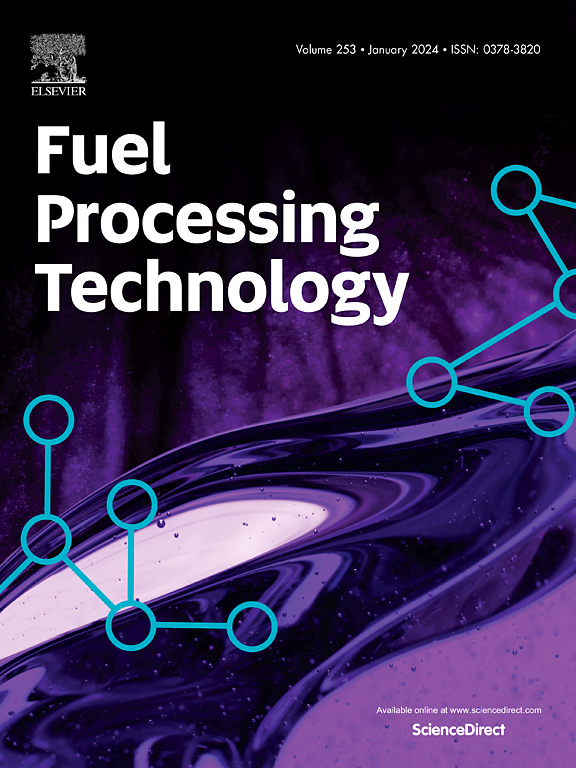Profiling the trapped and deactivating species on HZSM-5 zeolite during 1-butene oligomerization
IF 7.7
2区 工程技术
Q1 CHEMISTRY, APPLIED
引用次数: 0
Abstract
The transformation of 1-butene into valuable fuels using HZSM-5 zeolite catalysts is significantly hindered by deactivation caused by deposited species and coke formation. This work delves into the entrapment, formation, and growth of these species during 1-butene oligomerization at 275–325 °C, 1.5–40 bar, and space-times of 2–6 gcat h molC−1. We have employed an extensive characterization of the used catalysts, integrating conventional techniques with high-resolution mass spectrometry (Fourier Transform Ion Cyclotron Resonance Mass Spectrometry, FT-ICR MS). This advanced technique provides a detailed molecular-level analysis of these species. Our findings reveal that higher pressures promote oligomerization, resulting in an increased accumulation of trapped oligomer species. Conversely, higher temperatures facilitate the cracking of these oligomers into lighter fractions or their further conversion into coke molecules through condensation reactions. This dual behavior underscores the complex interplay between temperature and pressure in influencing the deactivation pathways. By understanding the overall reaction mechanism and the formation and growth patterns of trapped and deactivating species, we can develop strategies to mitigate catalyst deactivation, ultimately leading to more efficient industrial applications.
HZSM-5沸石在1-丁烯低聚过程中捕获和失活物质的分析
利用HZSM-5沸石催化剂将1-丁烯转化为有价值的燃料,由于沉积物和焦炭的形成而导致失活。这项工作深入研究了在275-325°C, 1.5-40 bar和2-6 gcat h molC−1的空间时间下,这些物种在1-丁烯寡聚过程中的捕获,形成和生长。我们对所用催化剂进行了广泛的表征,将传统技术与高分辨率质谱法(傅里叶变换离子回旋共振质谱法,FT-ICR MS)相结合。这项先进的技术为这些物种提供了详细的分子水平分析。我们的研究结果表明,较高的压力促进了低聚,导致被困低聚物种类的积累增加。相反,较高的温度有利于这些低聚物裂解成较轻的馏分或通过缩合反应进一步转化为焦炭分子。这种双重行为强调了影响失活途径的温度和压力之间的复杂相互作用。通过了解整个反应机制以及捕获和失活物种的形成和生长模式,我们可以制定减轻催化剂失活的策略,最终实现更有效的工业应用。
本文章由计算机程序翻译,如有差异,请以英文原文为准。
求助全文
约1分钟内获得全文
求助全文
来源期刊

Fuel Processing Technology
工程技术-工程:化工
CiteScore
13.20
自引率
9.30%
发文量
398
审稿时长
26 days
期刊介绍:
Fuel Processing Technology (FPT) deals with the scientific and technological aspects of converting fossil and renewable resources to clean fuels, value-added chemicals, fuel-related advanced carbon materials and by-products. In addition to the traditional non-nuclear fossil fuels, biomass and wastes, papers on the integration of renewables such as solar and wind energy and energy storage into the fuel processing processes, as well as papers on the production and conversion of non-carbon-containing fuels such as hydrogen and ammonia, are also welcome. While chemical conversion is emphasized, papers on advanced physical conversion processes are also considered for publication in FPT. Papers on the fundamental aspects of fuel structure and properties will also be considered.
 求助内容:
求助内容: 应助结果提醒方式:
应助结果提醒方式:


